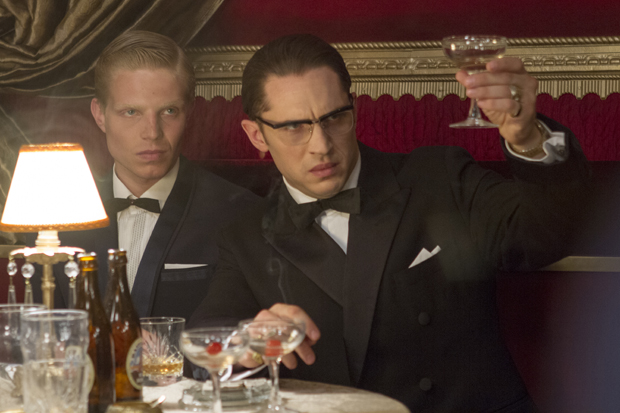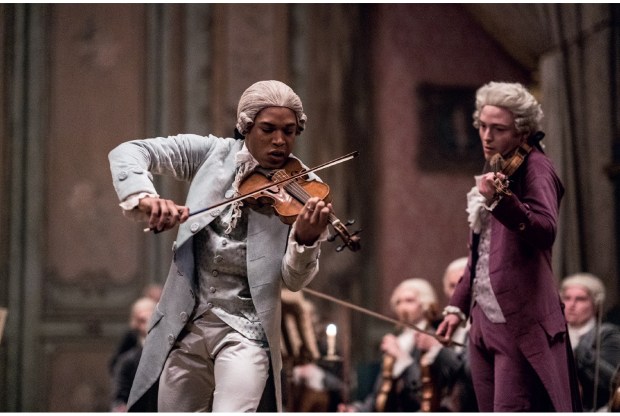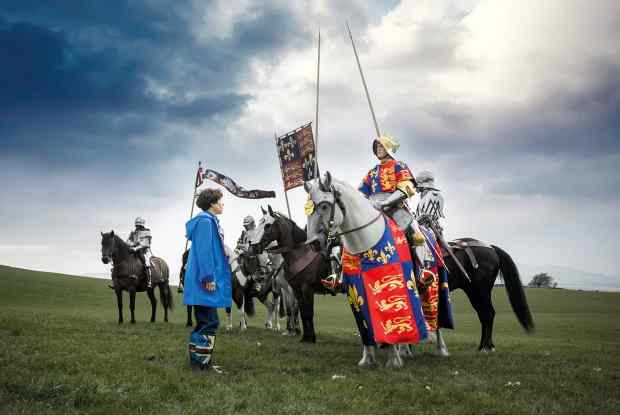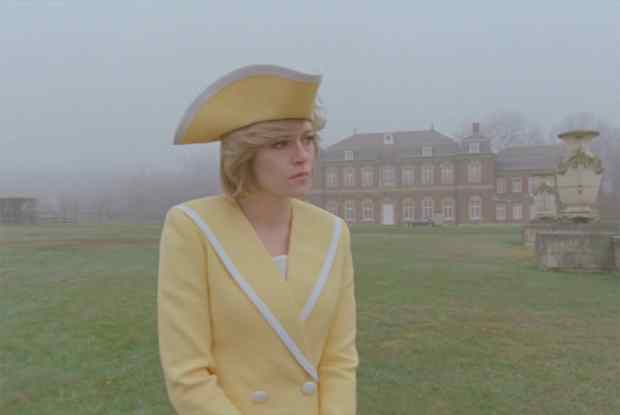Legend is a biopic of the Kray twins starring Tom Hardy as Reggie and Tom Hardy as Ronnie, so it’s buy one get one free, and this offer will sell the film. It sold it to me, who would otherwise have little interest in the Krays, and was never moved to correspond with either (see Harry Mount’s Arts Feature; I did once write to David Cassidy, but did not receive a reply). So it’s Hardy’s performance(s) that’s the draw, and Hardy is dazzling because Hardy is dazzling, not because Legend is especially dazzling. Indeed, Hardy dazzles in spite of the film, which is muddled, cartoonish, fails to negotiate a clear path between fact and fiction, as is the way with biopics of this type (see also: anything on any of the Great Train Robbers), and will also kick off the debate about the glamorisation of violent criminals, as if we care. Our care should only ever be: is it any good? (Answer at end, but I believe I have already given you some hefty clues.)
This has been written and directed by Brian Helgeland (L.A. Confidential, Mystic River), an American who has said that his interest in the Krays was first piqued in 1998 when making a film about Led Zeppelin. One of their entourage had a missing finger ‘and he told me a story about how the Krays had cut it off’. (This turned out to be a lie but Helgeland’s interest, once piqued, did not un-pique.) His route to the story is through Frances Shea, Reggie’s wife of two months who later committed suicide. Here, she narrates via voice-over, from beyond the grave, which is odd, as is her omnipresence; as is her commentary on events she couldn’t possibly have witnessed. She also speaks almost entirely in clichés, and is a fatally underwritten character. Dreamily innocent one minute, she is miserably popping pills the next, with no sense of any journey in between. Many of the characters feel fatally underwritten, including Violet, the boys’ mother, who was known as a fearsome matriarch — do we think that much is true? — but only serves tea and cake here.
The film opens in the 1960s with the Krays already holding power in the East End, which does not allow for any back story, or any insight into what makes them tick. More specifically, it opens with Reggie courting Frances while also wrangling over Ronnie’s release from a psychiatric institution. The film could then, perhaps, have focused on Reggie’s marriage, and Ronnie’s jealousy, and offered a new perspective in that way, but instead it goes on to cast its net wide and yet wider still as it takes on the police officer who is after them, the American mafia (who are trying to get a foothold in London), the turf war with Charlie Richardson, and their dealings with politicians and celebrities. (‘We had that Barbara Windsor in here last night,’ someone even says.) So it goes everywhere but nowhere, as regularly punctuated by scenes of extreme violence. Such scenes may be necessary, but they’re also repetitive. Once I have seen Reggie calling someone over, lulling them into a false sense of security and then breaking their nose, I am not hungry to see it all over again, ten minutes later.
The twins are physically distinguishable as Ronnie wears those thick-rimmed glasses, and he’s been given a squarer jaw via prosthetics, but mostly they are differentiated by Hardy’s acting, which awards each a distinct personality. Reggie is cool, unflappable, rather Clint Eastwood-ish, while Ronnie, who speaks in an adenoidal whine, is seriously unhinged and given to psychotic tantrums. Watching Hardy play opposite Hardy is fascinating, and he does dazzle, but as neither Ronnie nor Reggie are given any interior lives, it is watching at the expense of believing, and at the expense of feeling immersed in the story. I was not immersed, and was often much distracted. The tone, for example, is all over the place. I laughed quite a few times at Ronnie, without knowing if I was meant to, and I laughed at John Sessions’s portrayal of Lord Boothby, without knowing if I was meant to, and I laughed almost constantly at the soundtrack of Sixties pop hits, which I knew I wasn’t meant to, but as it may be the most literal-minded soundtrack of all time, I couldn’t help myself. ‘Chapel of Love’, for example, plays over Reggie and Frances’s wedding, like we can’t see they’re getting married; like we have to be told: ‘Goin’ to the chapel and we’re gonna get married…’ Hilarious. And the glamour? Yes, there is glamour, and everything looks exceedingly glamorous. The suits are razor-sharp. The Ford Anglias are a sparkling black. The nightclubs drip with champagne. This East End shows no hint of poverty or grottiness and, instead, appears as groovily hip and shiny as the Hoxton of today. But our care with any film should only be ‘is it any good?’ and in this instance the answer has to be: ‘probably not, no’.
Got something to add? Join the discussion and comment below.
Get 10 issues for just $10
Subscribe to The Spectator Australia today for the next 10 magazine issues, plus full online access, for just $10.
You might disagree with half of it, but you’ll enjoy reading all of it. Try your first month for free, then just $2 a week for the remainder of your first year.














Comments
Don't miss out
Join the conversation with other Spectator Australia readers. Subscribe to leave a comment.
SUBSCRIBEAlready a subscriber? Log in